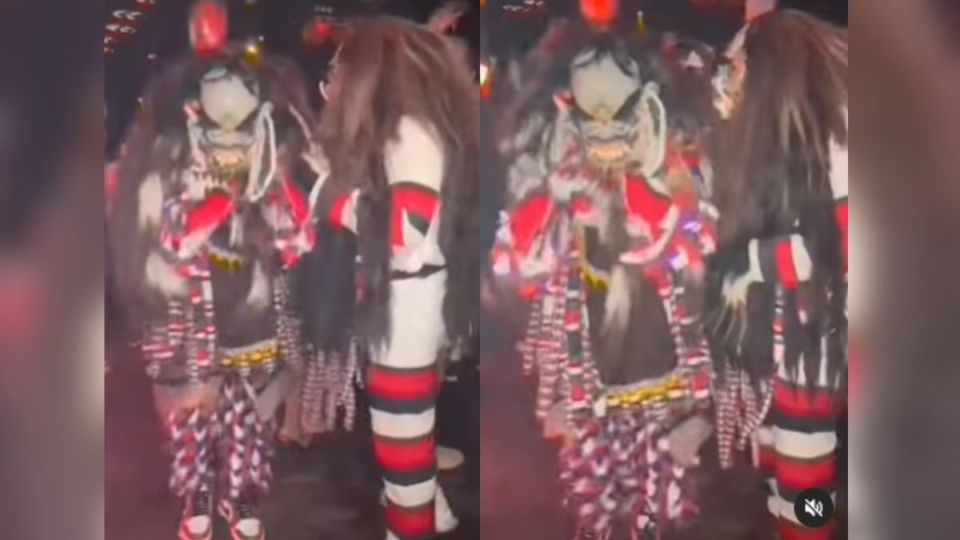A video of two people gyrating on the dancefloor wearing traditional Balinese masks in what appears to be a Halloween party has raised questions about whether or not it is appropriate.
Spoiler alert: it’s not.
The clip was shared by Arya Wedakarna, a member of the Indonesian Regional Representative Council representing Bali, over the weekend.
The reel depicted two unidentified people dancing to EDM tunes donning red, black, and white traditional Balinese costumes featuring masks depicting terrifying demons. One of the revelers was wearing a pair of Air Jordans, which added to the juxtaposition of the whole get-up.
Most commenters on the post expressed their disappointment, saying that the traditional attire should not be worn at nightclubs and that the people in the video are essentially mocking Balinese customs.
Some even went as far as demanding the nightclub be closed due to the incident.
Some, however, pointed out that such costumes are freely sold as souvenirs and therefore this should be the focus of the issue.
Anak Agung Gede Oka Dalem, a Peliatan-based prominent Balinese dance maestro, told Coconuts that the terrifying masks donned by the people in the video are called celuluk, which represent “the negative parts of life” and are often used for the popular calonarang and barong dance dramas.
While Gede Oka himself said that he was not personally offended by the Halloween dancers, he regrets that they failed to appreciate and respect local artists by only wearing the masks for appropriate occasions.
“At least [we] can differentiate between which ones are appropriate and which ones are not,” he said, adding, “[Wear them] on the right occasions as to avoid damaging the value of the arts, and avoid the impression of harassing their values.”
Kadek Kerta Rusmana Yasa, 34, a former resort manager who lives in Ubud, said that the costumes in the video represent manifestations of Gods in a pura (temple) in Bali, and therefore it is inappropriate to use them at nightclubs.
“As Balinese people, we don’t reject materialistic things such as nightclubs. As you can see there are many nightclubs in Bali,” Kadek said.
“However, that doesn’t mean you can wear costumes that represent Gods in Bali or even Mohammad or Jesus. Indeed, it’s just a costume, but this is a sensitive topic relating to faiths.”
Balinese illustrator Gus Dark told Coconuts that, while it might be easy for people to get angry, lambast, and judge the people in the video, the incident should serve as a wake up call for people on the island to be introspective of their shortcomings.
“What have we done to let Balinese culture be degraded? Have we supported the local artists who were forced to rent costumes out to put food on their table? Have we appreciated our cultures?” he said.
Gus Dark went on to say that many similar masks are sold cheaply at local art markets, as local artists struggle to make ends meet.
“It’s easy for us to say loudly that this is not ethical or that is not appropriate without looking for the root of the problem,” he said.
“When we point a finger, don’t forget that four fingers are pointed back at us. Like Eric Clapton said: ‘before you accuse me, take a look at yourself.’”
EDITOR’S NOTE: This story has been updated to add Gus Dark’s statement.




